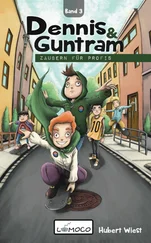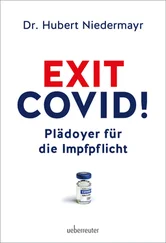Hubert Aquin - Next Episode
Здесь есть возможность читать онлайн «Hubert Aquin - Next Episode» весь текст электронной книги совершенно бесплатно (целиком полную версию без сокращений). В некоторых случаях можно слушать аудио, скачать через торрент в формате fb2 и присутствует краткое содержание. Год выпуска: 2001, ISBN: 2001, Издательство: McClelland & Stewart, Жанр: Современная проза, на английском языке. Описание произведения, (предисловие) а так же отзывы посетителей доступны на портале библиотеки ЛибКат.
- Название:Next Episode
- Автор:
- Издательство:McClelland & Stewart
- Жанр:
- Год:2001
- ISBN:9781551996240
- Рейтинг книги:3 / 5. Голосов: 1
-
Избранное:Добавить в избранное
- Отзывы:
-
Ваша оценка:
- 60
- 1
- 2
- 3
- 4
- 5
Next Episode: краткое содержание, описание и аннотация
Предлагаем к чтению аннотацию, описание, краткое содержание или предисловие (зависит от того, что написал сам автор книги «Next Episode»). Если вы не нашли необходимую информацию о книге — напишите в комментариях, мы постараемся отыскать её.
is a disturbing and yet deeply moving novel of dissent and distress. As he awaits trial, a young separatist writes an espionage story in the psychiatric ward of the Montreal prison where he has been detained. Sheila Fischman’s bold new translation captures the pulsating life of Aquin’s complex exploration of the political realities of contemporary Quebec.
Next Episode — читать онлайн бесплатно полную книгу (весь текст) целиком
Ниже представлен текст книги, разбитый по страницам. Система сохранения места последней прочитанной страницы, позволяет с удобством читать онлайн бесплатно книгу «Next Episode», без необходимости каждый раз заново искать на чём Вы остановились. Поставьте закладку, и сможете в любой момент перейти на страницу, на которой закончили чтение.
Интервал:
Закладка:
Far below in the valley the glacial lake was glinting and the morning sun was starting its fiery course around the Aiguille du Géant when suddenly, with a slowness that reassured me about the acuity of my reflexes, I held out the sheet of paper to H. de Heutz, who made a move with his left arm to take it back. It would have been too easy, therefore awkward, to attack him just then when all his muscles were tensed to fend off a surprise. I gave him time to fold up Hamidou’s message and get far enough ahead of me to feel secure. Which he did, sure that if I’d had to attack I’d have done so when the distance between us was minimal and our hands were nearly touching. Now that he’d moved away from me, H. de Heutz relaxed and visibly loosened up his defence system. I slowly shifted my feet into the starting position; then, inside the infinitesimal crack of hesitation, I leaped to his right and hit his temple as hard as I could, hard enough to throw him off balance and interrupt the move he’d begun to make, to draw his weapon, which he’d carelessly put back in the holster after regaining possession of the blue paper. My right arm made the move that his was supposed to make, and I grabbed the butt of his revolver. Then I moved as if to ward him off, which put a screen of distance between us and allowed me to fire.
“One word and I shoot. Go out ahead of me. Take me to the car …”
I followed close behind him, concentrating on his movements so that all I saw of the sumptuous chateau were some fragmented images that my own movements distorted: gilded mouldings, the outline of a buffet, a leather-bound book … The chateau remained deep in silence: for my safety, nothing else mattered. On the left, in a vestibule next to the salon, was the exit. We went out quickly to the garden. I let my host get several steps ahead of me to be sure that he was in my sights and to forestall any surprise. I spotted the blue Opel right away: I made him give me the keys and took several steps around the car. Without haste I opened the trunk and gestured to H. de Heutz to get inside; fortunately there was room. He hesitated, surprised and suspicious too, most likely. But since I emphasized my point with a simple movement of the hand holding the gun, he stepped over the rear bumper and curled up inside as best he could just before I brought the lid down. A few seconds later I was at the wheel. I had no trouble starting the Opel’s engine and making the little sedan move along the gravel. There was no fence at the exit to the grounds; I turned right instinctively, just in case. The chateau was close to a village that gradually came into sight in my rear-view mirror as I drove away. I spotted a sign on the other side of the little road and slowed down to read the name of the village: Echandens. This name meant nothing to me, but from the configuration of the landscape I guessed I was somewhere between Geneva and Lausanne, closer to Lausanne actually, because of my position relative to the constellation of glaciers that were lit obliquely by the sun. There was just one thing for me to do: drive towards the great depression where, far below, I saw the luminous face of Lac Léman.
7
TONIGHT, AS I drive between Echandens and the bottom of a valley in the car belonging to a man who’s no longer bothering me, I feel discouraged. I have not yet killed this man, H. de Heutz or von Ryndt, and that’s depressing. I’m very weary: a vague yearning for suicide has come back to me. I’m tired finally. And my problem strangely resembles that of the unknown man curled up in the trunk of a blue Opel that I drove at a good clip from Echandens to Morges down unfamiliar secondary roads. Now I had just one concern: what method should I use for killing H. de Heutz? As I made my way through this peaceful countryside, I could make out more clearly the cirque of mountains surrounding the lake and recognize the dramatic configuration of this landscape that had enchanted K and me. Emerging onto the heights of Morges, I drove onto the long ribbon of the expressway to Geneva. The dashboard clock read half-past nine; my watch, which was more precise, showed nine-thirty-two. All was well. The package in my trunk didn’t reduce my cruising speed. I was genuinely happy, nearly ecstatic as I drove along. My imagination and my superiority had pulled me out of an awkward situation. My honour was safe. At half-past six I would meet K on the terrace of the Hôtel d’Angleterre, which gave me plenty of time to send a few bullets into my passenger’s temple. In fact I had too much time: I had practically nothing to do before our meeting and I was already burning with impatience. Overwhelmed as I was, I also felt extravagantly free, inordinately powerful — invincible! Driving into Geneva, I went automatically to Place Simon-Goulart. At once I spotted the egg-like shape of my Volvo. I found a place to park the Opel near the Banque Arabe. In the euphoria of my escape I’d forgotten to think, but now I was suddenly aware of danger. No sooner had I parked than I decided to clear out. First of all, Place Simon-Goulart is not a place where you can easily kill a man in the trunk of a car without rousing suspicion. And some of H. de Heutz’s friends might drop by, wait for me to pick up my Volvo, and nab me. I’d been careless.
For some time now I’ve been awash in melancholy. Fleeting images are all around me, flying in my mental jungle like anopheles. I’m in pain. Hours and hours have been added to the time when I’ll kill H. de Heutz. And a cloistered life marks with despair the words imprinted on my broken memory. This republican ennui is cruelly draining me of my revolutionary zeal. Though I don’t want to glorify the happiness I’ve lost, I secretly praise it and confer plenipotentiary attributes on what is not happening to me. I see myself again sitting on the gallery of our rented villa. We were drinking a wine from Johannesburg at the high altitude, facing the Chamossaire; across the valley the great Alps stretched out towards the south. What terrifies me is that I’m no longer suspended in the majestic void; I am here, slipping into the variable densities of my defeat. The passing hours are burying me in despair. I feel so far removed from my former life and from those mornings in Leysin when I would walk in the pure air 1,800 metres above sorrow and failure, well beyond the surface of Lac Léman where, for days now, I’ve been descending, asphyxiated, into an imaginary current that runs past the terrace of the Hôtel d’Angleterre where I am dying of love. Sensitive only to the movement of the water that pushes me along dazzling shores and makes me glide beneath the base of the Alps, I let it carry me. My past is disembowelled by the hypocritical pressure of the verb. I am dying, drugged, in a false-bottomed lake while I spy through translucent portholes a gelatinous and protozoan mass that exhausts me and resembles me.
In a few days of summer, during that interval between two dwindling shores and two days of revolution, between the flaming island and the frenzied night of August 4, after two centuries of melancholy and thirty-four years of helplessness I am becoming depersonalized. Time is fleeting as I write, everything is becoming a little more rooted, and here I am, dear love, reduced to my final dust. Total mineralization. Motionless, I attain a volcanic stasis. With this historic dust I surround my eyes and eyebrows; I make myself a mask. I write to you.
Writing is a great expression of love. Writing used to mean writing to you; but now that I’ve lost you I still mass words together, mechanically, because in my heart of hearts I hope that my intellectual wanderings, which I reserve for born debaters, will make their way to you. Then my book of ideas will be simply the cryptic continuation of a night of love with you, my absolute partner to whom I can write in secret by addressing myself to a readership that will never be anything more than the multiplication of your eyes. Writing to you, I address the world. Love is the cycle of the word. I write to you infinitely, endlessly inventing the canticle I read in your eyes; through my words I place my lips on the blazing flesh of my country and I love you, desperately, as on the day of our first communion.
Читать дальшеИнтервал:
Закладка:
Похожие книги на «Next Episode»
Представляем Вашему вниманию похожие книги на «Next Episode» списком для выбора. Мы отобрали схожую по названию и смыслу литературу в надежде предоставить читателям больше вариантов отыскать новые, интересные, ещё непрочитанные произведения.
Обсуждение, отзывы о книге «Next Episode» и просто собственные мнения читателей. Оставьте ваши комментарии, напишите, что Вы думаете о произведении, его смысле или главных героях. Укажите что конкретно понравилось, а что нет, и почему Вы так считаете.












